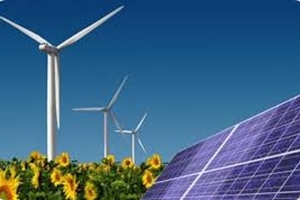
Wholesale electricity markets in most key European economies saw zero or negative prices for a record number of hours in the first five months of this year during periods of low demand.
Negative prices are nothing new in Germany, home to Europe's largest intermittent solar and wind power capacity, but they will be introduced in Spain in 2024, the first time after years of strong solar growth.

A representative of the Association of Local Utilities in Germany (VKU) said that only those consumers who have invested in a heat pump, a charger for their electric car or an energy storage system will benefit from negative prices.
Those who have fixed-price contracts will only feel the positive impact of negative electricity prices once average market prices have been reduced in the long term.
On the other hand, the electricity market currently shows a greater gap between "cheap and expensive hours", which increases the incentives for investing in electricity storage in particular.

EU experts estimate that energy storage volumes in the bloc will have to more than triple between 2022 and 2030 if the share of renewable energy in the EU electricity system reaches the projected 69% by then.